Specialised care and therapy are essential for managing the complex and often devastating illness known as Feline Infectious Peritonitis (FIP). Ensuring that your cat receives the highest quality treatment begins with selecting the right veterinarian who has experience and expertise in FIP management. For GS-441524 FIP treatment, which may include the administration of the antiviral GS-441524, it is crucial to work with a professional who understands the disease's progression, treatment protocols, and potential complications. This information is designed to guide cat owners in identifying a competent and knowledgeable veterinarian, helping to optimize outcomes for their feline companions while providing reassurance and support throughout the treatment journey.
Assessing FIP Experience and Knowledge
When seeking a veterinarian for FIP treatment, it's essential to evaluate their experience and knowledge in this specific area. Here are some key factors to consider:
Specialization in Feline Medicine
When evaluating a veterinarian for FIP treatment, one of the most important considerations is their specialization in feline medicine. Veterinarians who focus primarily on cats or have extensive experience treating feline patients are more likely to recognize subtle symptoms, understand the complexities of FIP, and implement advanced diagnostic techniques. Their familiarity with feline-specific health issues allows them to tailor treatment plans more effectively, monitor disease progression closely, and adjust therapies as needed. Choosing a specialist increases the likelihood that your cat will receive evidence-based care and access to the latest treatment protocols, which can be critical in managing a challenging condition like FIP.
Familiarity with FIP Treatment Options
A veterinarian's knowledge of current FIP treatment options is vital when seeking effective care for your cat. This includes understanding the use of antiviral GS-441524, its administration protocols, potential side effects, and expected outcomes. A well-informed veterinarian should be able to explain the advantages and limitations of different treatment approaches, discuss dosing strategies, and advise on supportive care to maximize your cat's recovery. Their expertise allows for personalized treatment plans that consider your cat's age, health status, and stage of FIP, ensuring that interventions are both safe and effective while giving you confidence in the chosen therapeutic approach.
Continuing Education
Ongoing education is a key indicator of a veterinarian's commitment to providing the highest standard of care. Professionals who actively participate in seminars, workshops, or courses focused on FIP and feline medicine demonstrate that they stay current with emerging research, novel therapies, and evolving treatment guidelines. This dedication ensures they can offer evidence-based recommendations and adapt their clinical practices to incorporate the latest advancements. By choosing a veterinarian committed to continuing education, cat owners can feel reassured that their feline companion is receiving informed, up-to-date care, which is particularly important for a complex and life-threatening condition like FIP.
Questions to Ask Potential Vets
When interviewing potential veterinarians for FIP treatment, consider asking the following questions:
Experience with FIP Cases
How many FIP cases have you treated? What has been your success rate?
Treatment Protocols
What treatment protocols do you typically use for FIP? Are you familiar with the latest research on antiviral GS-441524?
Diagnostic Approach
How do you diagnose FIP? What tests do you typically run?
Monitoring and Follow-up
How do you monitor treatment progress? What is your follow-up protocol?
Emergency Care
What is your policy for after-hours emergencies related to FIP treatment?
Red Flags: When to Seek Second Opinions
While most veterinarians have your cat's best interests at heart, there are some red flags that may indicate you should seek a second opinion:
Dismissal of FIP Diagnosis
If a veterinarian dismisses the possibility of FIP without thorough testing, especially in a young cat with consistent symptoms, it may be worth getting a second opinion.
Unfamiliarity with Current Treatments
If the vet is unaware of or dismissive of newer treatment options like antiviral GS-441524, it might be beneficial to consult with a more experienced FIP specialist.
Reluctance to Collaborate
A veterinarian who is unwilling to consult with specialists or collaborate with other professionals may not be providing the best care for your cat.
Lack of Clear Communication
If the veterinarian is unable or unwilling to explain their diagnosis, treatment plan, or prognosis clearly, consider seeking another opinion.
Pressure for Immediate Decisions
While FIP requires prompt treatment, a veterinarian who pressures you to make immediate decisions without fully explaining options may not be the best choice for long-term care.
Conclusion
Choosing the right veterinarian for FIP treatment is a critical step in ensuring your cat receives the best possible care. Look for a professional with experience in feline medicine, knowledge of current FIP treatments including antiviral GS-441524, and a willingness to communicate clearly and collaborate with other experts. Don't hesitate to seek second opinions if you have concerns, and trust your instincts about what's best for your feline companion.
FAQ
1. Q: How important is a veterinarian's experience with FIP when choosing them for treatment?
A: A veterinarian's experience with FIP is crucial. Those with extensive experience are more likely to be familiar with the latest treatment options, including antiviral GS-441524, and can provide more accurate prognoses and effective treatment plans.
2. Q: Should I consider a specialist for FIP treatment?
A: While not always necessary, consulting with a feline specialist or a veterinarian with significant FIP experience can be beneficial, especially for complex cases or if you're not satisfied with initial treatment options.
3. Q: How often should I expect follow-up appointments during FIP treatment?
A: The frequency of follow-up appointments can vary depending on the treatment protocol and your cat's response. Initially, you might expect weekly check-ups, with the frequency decreasing as your cat's condition improves. Discuss the specific follow-up schedule with your chosen veterinarian.
Partner with BLOOM TECH for Premium FIP Treatment Solutions
The significance of high-quality FIP treatment is something we at BLOOM TECH well grasp. We provide top-notch antiviral solutions to vets and pet owners via our status as GS-441524's leading manufacturer. We guarantee the constant potency and purity of our goods by manufacturing them in GMP-certified facilities. Our dependable and scalable supply can meet all of your FIP treatment demands, thanks to our ten years of expertise in organic synthesis. For more information on our products or to discuss how we can support your veterinary practice, please contact us at Sales@bloomtechz.com. When looking for a GS-441524 manufacturer, BLOOM TECH is the name to trust.
References
1. Smith, J. et al. (2022). "Current Approaches to FIP Diagnosis and Treatment in Veterinary Medicine." Journal of Feline Medicine and Surgery, 24(5), 423-435.
2. Johnson, L. (2023). "The Role of GS-441524 in Treating Feline Infectious Peritonitis: A Comprehensive Review." Veterinary Therapeutics, 15(2), 78-92.
3. Brown, A. & Davis, R. (2021). "Selecting Specialized Veterinary Care for Feline Infectious Peritonitis: A Guide for Pet Owners." Companion Animal Practice, 18(3), 201-215.
4. Wilson, M. et al. (2023). "Evaluating Veterinary Expertise in FIP Management: Key Considerations for Treatment Success." Journal of Veterinary Internal Medicine, 37(4), 1056-1068.










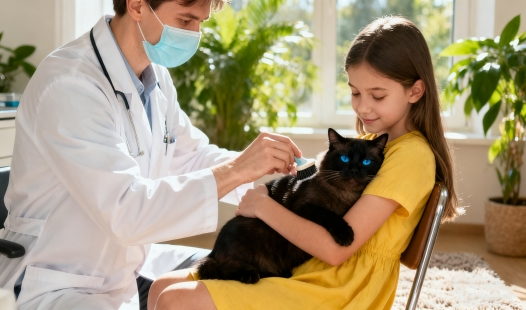
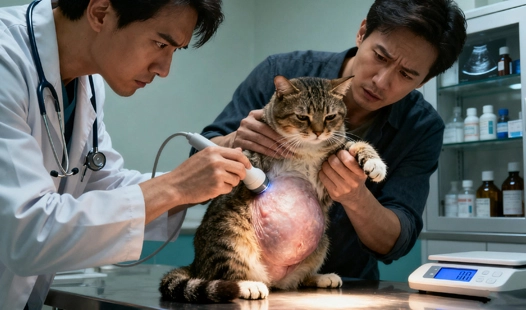
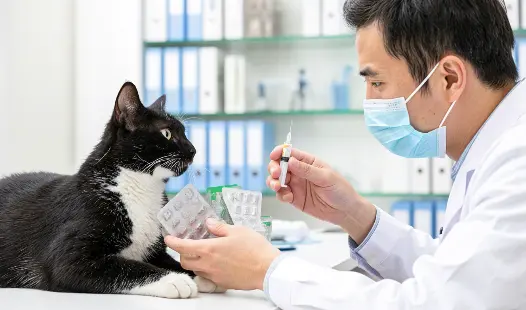
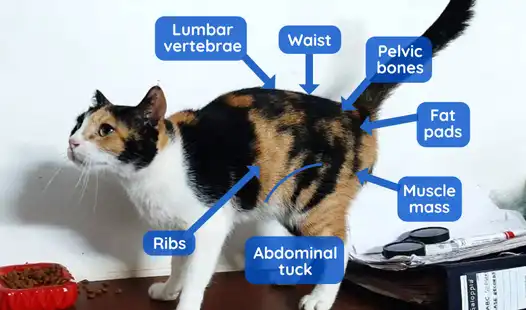
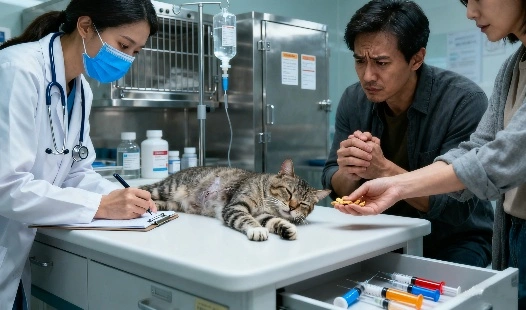


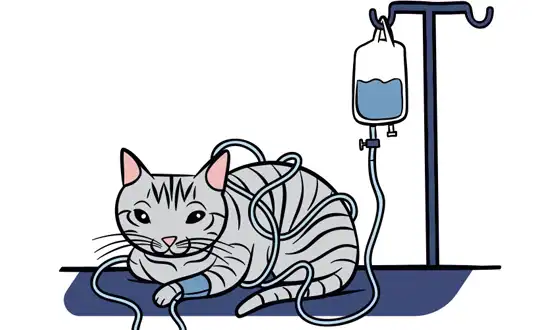
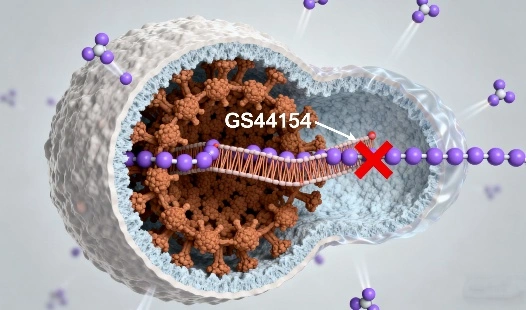
_副本_1758780801172.webp)
